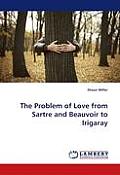I previously posted a blog about Being vs. Doing. It was dealing with how people looked at the world and weather a “being” philosophy has a higher status than a “doing” philosophy, or vice-versa. I think this would also apply to the realm of ethics. I’ll talk about abortion, capital punishment, and gay marriage.
With abortion: Pro-lifers point out that the being involved is important because of what it is (namely, “human”). The biological entity isn’t just any being but a special kind of being and because this being has special status, we should give it consideration (rather than other types of beings like rocks, chairs, pens, etc.). Pro-choicers will argue back that the being doesn’t matter; it’s the traits that matters morally. In other words, what is it doing? Rocks, chairs, and pens don’t matter morally because they aren’t doing anything that qualifies them to have a special moral status. The same applies to a fetus: it doesn’t have any traits (in other words, it isn’t doing anything morally) that we would consider having moral status. So the question comes back: is being or doing more important?
With capital punishment: People who are for capital punishment focus on the doing. This person did something that we must consider morally. It’s an atrocious act, a capital crime and that person must be punished accordingly. People against capital punishment have used a being argument. For example: The convicted rapist Matias Reye had a horrible childhood. When he was 2 years old, his mother sold him to his father for $400. At age 7, two older boys sexually abused him and threw him in a river. By age 17, he was living alone on the street of New York, scratching for money as an East Harlem delicatessen clerk and sleeping in a van outside of the store. People who use a being argument suggest that it really wasn’t his fault for being like this. His upbringing made him into this type of being and he shouldn’t be blamed for this. (I know that there are those arguments that argue against capital punishment based on traits rather than being, but most anti-capital punishment arguments do focus on being rather than doing.)
Finally, gay marriage: People against gay marriage say that the relationship isn’t the proper kind. In other words, the being of the relationship isn’t the right kind of being and so they cannot get the full sanctity of a marriage. People for gay marriage say that the being doesn’t matter. It’s the doings of the relationship. The argument is that their marriage isn’t harming anyone, thus they should be allowed to get married.
I’m sure many more applications could be used here but I’m wondering if all ethics could be reduced to a “being” vs. “doing” dichotomy.


Everything I’ve thought of so far fits into it.
In being vs. doing there is the problem of saying dose this person or thing have rights in and of its self or do we simply have a moral obligation to this person or thing(in the case of abortion). In other cases such as the capital punishment, I believe that actions ought to be the determiner. The act they committed was a choice. There are people that have grown up in situations were they could have grown up to be ‘dysfunctional’ and they exist fine within the society. The criminal choice their actions and should not have the blame displaced for them. In terms of gay marriage, a person can still be in love and can still act as a partner. This isn’t dependent on the gender of the people involved. All in all I would say that in most cases ‘doing’ has more weight in a situation then ‘being’.
Well, you have a point but I think in all, what we are precedes what we do and the “being” cannot be overemphasized.
At least you’re consistent and not switching from “being” to this issue and then “doing” to the next. Many people switch back and forth because it “fits” with their dogmatic beliefs.
I try. ^.^ A person should be held accountable for their actions, but they do have the right to act. So ‘doing’ is a strong means of determining morals.